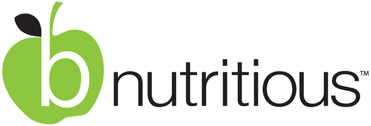To Buy Prelone Online Visit Our Pharmacy ↓
 Exploring Alternatives to Prelone for Inflammation Relief
Exploring Alternatives to Prelone for Inflammation Relief
Understanding Inflammation: Causes and Effects
Inflammation is the body's natural response to injury or infection, acting as a vital defense mechanism. When tissues are damaged, chemical signals trigger an influx of white blood cells to protect the area. However, prolonged inflammation can lead to chronic health issues, such as arthritis or cardiovascular diseases. The causes of inflammation are varied, ranging from infections and injuries to autoimmune disorders and environmental factors like pollution.
| Common Causes | Effects |
|---|---|
| Infections | Redness, swelling, fever |
| Injury | Pain, heat, limited function |
Understanding these triggers and their effects is essential for effective management and relief strategies. Recognizing the signs can help in taking timely action to mitigate long-term impacts.
Exploring Prelone: Uses and Side Effects

Prelone, a corticosteroid medication, is widely used to manage various inflammatory conditions, including asthma, allergic disorders, and arthritis. It operates by reducing inflammation and suppressing the immune system, thereby alleviating symptoms such as swelling, redness, and allergic reactions. Despite its effectiveness, Prelone is not without its drawbacks, as its side effects can sometimes outweigh the benefits for certain individuals.
Common side effects of Prelone include increased appetite, mood swings, and difficulty sleeping. More severe effects, such as weakened bones, high blood pressure, and increased risk of infections, may occur with long-term use. For some patients, these side effects prompt the search for alternative treatments. While Prelone can be a powerful tool in managing inflammation, understanding its risks encourages a balanced approach in considering other options for relief.
Herbal Remedies: Nature’s Own Inflammation Fighters
Nature has long provided remedies to ease inflammation, offering alternatives to pharmaceuticals like Prelone. Turmeric, rich in curcumin, is celebrated for its anti-inflammatory properties, helping to reduce pain and swelling. Ginger, another powerful herb, works by inhibiting enzymes associated with inflammation, providing relief often equivalent to some over-the-counter medications. Green tea is renowned for its antioxidants that combat free radicals, aiding in inflammation reduction. These herbal warriors not only mitigate symptoms effectively but also come with fewer side effects, promoting natural healing.
Over-the-counter Solutions: Convenient and Effective Options

When addressing inflammation, many seek alternatives to prescription medications like Prelone due to potential side effects and the desire for more accessible options. Over-the-counter (OTC) solutions present a practical alternative, often combining effectiveness with ease of use. Common OTC anti-inflammatory drugs, such as ibuprofen and naproxen, provide short-term relief for various inflammatory conditions, including arthritis, muscle pain, and minor injuries. These medications work by inhibiting the enzymes responsible for inflammation and can be found in most pharmacies without the need for a prescription.
Additionally, topical treatments, like gels and creams, offer targeted relief for localized inflammation. Products containing ingredients such as menthol or capsaicin can soothe aches and pains without systemic side effects. While OTC options are generally considered safe, it's essential to use them as directed and consult a healthcare professional for long-term solutions or if symptoms persist.
Lifestyle Changes: Diet, Exercise, and Stress Management
Incorporating holistic lifestyle changes can significantly impact inflammation levels and possibly reduce the dependency on medications like Prelone. A balanced diet rich in antioxidants can combat inflammation by neutralizing free radicals in the body. Foods such as berries, spinach, and nuts are excellent choices. Regular physical activity further supports inflammation reduction by boosting circulation and promoting the release of anti-inflammatory compounds in muscles.
Stress management is another crucial element in this equation. Chronic stress can elevate inflammatory markers, thus incorporating stress-reduction techniques like meditation or yoga can be beneficial. Lifestyle interventions can be as potent as medications, offering a more sustainable and side-effect-free approach to managing inflammation.
| Ingredients | Anti-Inflammatory Properties |
|---|---|
| Berries | Rich in antioxidants |
| Spinach | Contains vitamins E and C |
| Nuts | High in healthy fats |
Innovative Therapies: New Frontiers in Inflammation Relief
As science advances, novel therapies are transforming how we address inflammation. Biologic drugs, for instance, have emerged as powerful tools in targeting specific components of the immune system. These therapies offer precision in treatment, reducing the risk of widespread side effects seen with traditional medications. Meanwhile, low-level laser therapy is garnering attention for its ability to reduce inflammation and promote healing without invasive procedures. Additionally, innovations like cryotherapy, which uses cold temperatures to reduce inflammation, are being explored for their potential benefits in various inflammatory conditions.




